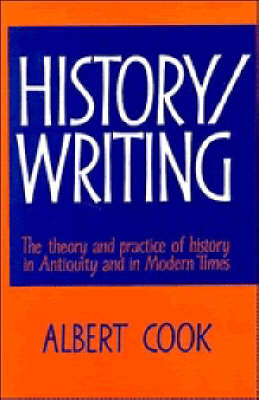History writing is a form of literature that claims a unique correspondence to the processes of the real world. In this ambitious study, Albert Cook examines the literary dimensions of historiacal writing. He examines two seemingly contradictory constraints on historiography: the truth-claims of texts and the rhetoric of historical discourse. He shows how these constraints combine to enable, rather than prevent, the presentation of meaning in temporal sequences of events. Cook's scope encompasses the historigraphical aspects of the Hebrew Bible and the Gospels, Homer, Thucydides, Tacitus, Gregory of Tours, Einhards, the Anglo-Saxon chronicles, Machiavelli Guicciardini, Gibbon, Ezra Pound, Foucault, Heidegger and Bradel. In the first half of his work he focuses on the practice of individual historians; in the second on particular philosophical or organizational techniques, in scriptural historians philosophical historians, or the self-critical historians of our own time. Though his concerns are systematic his analysis bears upon development questions in the practice of historiography over the past twenty-five hundred years. Thus, the book is not a history of historiography but a historicized perspective of its manifestations in different cultures. Its ambitious scope extends to questions of literary theory and criticism, literary history, rhetoric, semiology and narratology.
- ISBN13 9780521360494
- Publish Date 27 January 1989
- Publish Status Inactive
- Out of Print 25 June 1998
- Publish Country GB
- Imprint Cambridge University Press
- Format Hardcover
- Pages 288
- Language English
